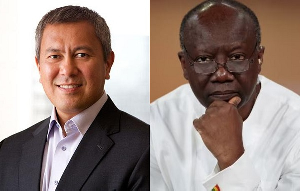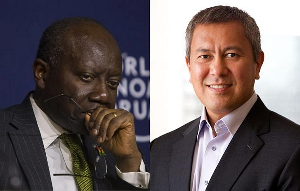In today's world, where financial stability is essential for a secure and fulfilling life, personal finance remains a glaring omission from most educational curricula. For many individuals, the journey toward financial literacy is a self-taught endeavour, with only a fortunate few benefiting from
mentorship.
However, the consequences of poor personal financial management are severe and
multifaceted, ranging from stress and health issues to strained relationships and even untimely death.
The repercussions of inadequate financial management cast a dark shadow over one's life, permeating every aspect with stress, anxiety, and, at times, despair. The inability to meet financial obligations, including essential healthcare expenses, can have dire consequences, exacerbating existing health issues and perpetuating a cycle of distress.
Furthermore, the lack of foresight due to financial constraints stifles personal growth and obstructs opportunities for prosperity, creating barriers to realizing one's fullest potential.
Discipline and the influence of social circles play pivotal roles in the journey towards financial freedom. According to Jim Rohn, "You are the average of the five people you spend the most time with," which underscores the transformative power of surrounding oneself with individuals who prioritize financial literacy and responsible money management. Discipline extends beyond mere budgeting
and saving—it encompasses resisting the allure of impulse purchases and steering clear of detrimental habits like substance abuse and gambling.
By carefully selecting friends and associates, individuals can leverage positive influences to stay committed to their financial goals and aspirations. While increasing income and enhancing earning potential are essential components of financial stability, these pursuits should never compromise one's health and well-being. Strategies such as upskilling and advancing in education can increase one’s earning potential, while pursuing additional employment opportunities can augment income streams.
Moreover, cultivating mindful spending habits, identifying and rectifying financial leaks, and prioritizing savings constitute fundamental pillars of sound financial management. Effective debt management is also paramount to ensuring that individuals do not become ensnared by the burdens of indebtedness but achieve true financial freedom.
Building an emergency fund is a prudent strategy to mitigate unforeseen financial setbacks. Accumulating savings equivalent to six months' worth of living expenses provides a safety net during periods of job loss, health emergencies, or other crises. Once an emergency fund is established, investing becomes the next logical step towards wealth accumulation. Diversifying investments across various asset classes, such as stocks, bonds, real estate, and retirement savings accounts, is essential for long-term financial growth.
Insurance is a crucial safeguard against unforeseen events, providing financial security and peace of mind. Policies covering health, life, property, and income protection offer invaluable protection. By securing comprehensive insurance, individuals can mitigate potential losses Unfortunately, this aspect of personal finance is often overlooked. However, recognizing the importance of insurance
and obtaining suitable coverage are essential steps toward safeguarding financial well-being and preparing for future uncertainties.
At the heart of prudent financial management lies budgeting—a roadmap guiding individuals toward their financial aspirations. A well-constructed budget aligns expected income with anticipated expenditures, providing clarity and accountability. It enables individuals to track spending, identify areas for improvement, and make informed decisions about their finances.
Moreover, adhering to a budget instills discipline and cultivates responsible money habits, laying the foundation for sustained financial success and empowerment.
In conclusion, the necessity of personal finance education cannot be overstated in today's complex world. It is not merely a luxury but a fundamental tool for navigating life's intricacies. By embracing discipline, surrounding oneself with positive influences, and prioritizing budgeting, individuals can overcome financial hurdles and pave the way for a brighter future.
However, to truly thrive financially, there must be a paradigm shift—a recognition that personal finance education should be seamlessly integrated into educational curricula and accessible to all, regardless of background or
circumstance. Seeking professional advice, especially in areas like investing and debt management, is crucial for making informed decisions and maximizing financial potential.
With budgeting as a guiding principle and professional guidance as a compass, financial freedom ceases to be an elusive dream but a tangible reality for all who dare to pursue it.
Opinions of Monday, 10 June 2024
Columnist: Kenechukwu Aguolu















